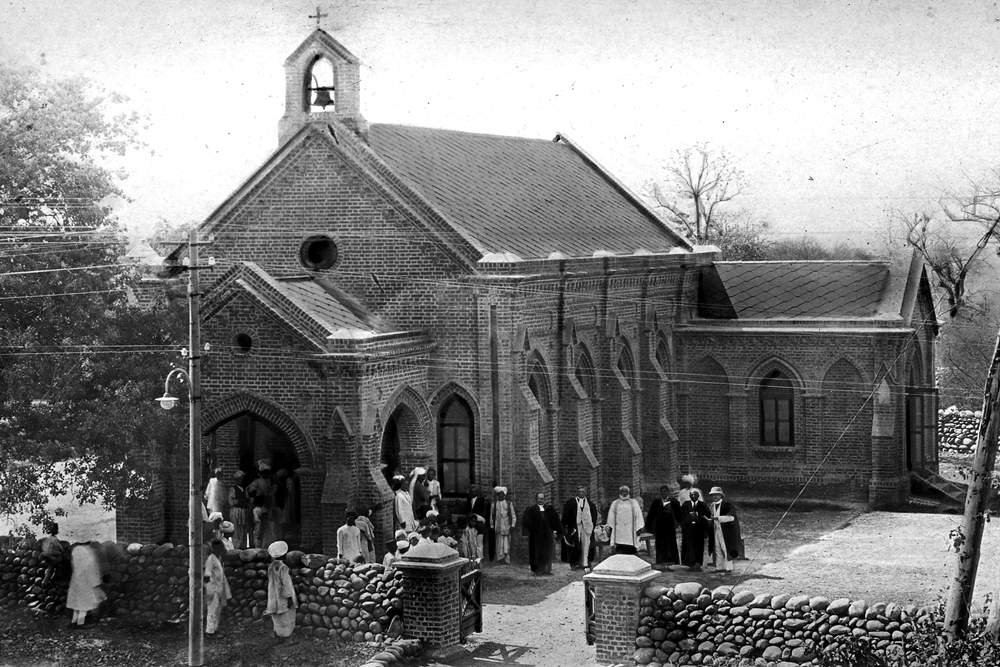Secularism, Secularization and Nationalism in South Asia

Secularism, Secularization and Nationalism in South Asia is a research project being led by CAPI Senior Research Fellow and UVic History's Neilesh Bose, and CAPI Associate and Professor Emerita Reeta Chowdhari Tremblay. It explores the dynamic and interactive relationship between religion, nationalism and the evolving modern institutions and public sphere in colonial India.
The project asks specifically the following four questions:
- What are the connections between Christian missions and their projects in the various regions of colonial India? Do they all have separate and distinctive histories or are there ways of seeing the shared experience of modern (c.1800 –) missionary histories in one framework?
- How are different regions of South Asia connected through the institutions promoting religious reform (e.g., Arya Samaj, Brahmo Samaj, etc.)? Are there themes and points of emphasis in these reform movements that cut across region?
- How do we approach categories such as secular and religious in line with a critical history of religion, education, and regional identity in South Asia?
- How do various communities with their different beliefs, customs and laws resist, adopt and reformulate their identities, negotiate their relationship to an emerging local as well national culture?
Ongoing Research Projects:
Missionaries, Colonial Imageries and Modern Kashmiri Muslim Identity
This project addresses the continuities and ruptures between Kashmir’s past and its present situation. It addresses the rise of Kashmiri nationalism, particularly in the Kashmir Valley, and the Kashmiri Muslim response to the sweeping social, economic and political transformations during the Hindu Dogra rule in the state. Here I intend to examine the interventions and efforts of Christian missionaries and the British government and, consequently, the nature of Kashmiri political protest against the Dogra state and later on against the Indian state. The first part of the project looks at the active role of the English missionaries (largely the Christian Missionary Society- CMS) who, with the occasional assistance of the British Residency, founded the first schools and medical clinics in the Valley, and what they wrote about Kashmiris and what they perceived to be their common traits. Second: How do these representations fit in with (or build upon) the narratives of Kashmir represented in the European travelogues? Several Europeans travellers (who have left behind a large travel literature) have presented a contrasting view of the Muslim Kashmir Valley – its visual splendour with beautiful ‘oriental’ landscape (often referring to Irish poet Thomas Moore’s description of the exotic Valley in his 1817 poem ‘the Vale of Cashmere’) and the oppressed Muslim majority population (dirty, lazy and cowardly) in a Hindu governed state. And third and most significantly, the project engages with both the vocal and the unspoken voices of the Muslim community and the expression of the counter-colonial narrative, through the newly alternative educational institutions (Islamic schools, Islamic college as well as Madrasa and Arya Samaj) as well Sufi shrines and mosques in the Valley.
Research Team: Reeta Tremblay; Zohra Batul; Helen Lansdowne and Panch Rishi Sharma
Publications:
- Neilesh Bose edited a roundtable of the Journal of the American Academy of Religion (https://academic.oup.com/jaar/advance-articles) titled “Religion as Polity Formation: Revisiting Modern Religion in Imperial India.” Contributions include an introduction by Neilesh Bose, original research by J. Barton Scott on section 295A of the Indian Penal Code, Shruti Patel on historical and political economy contexts of the Swaminarayan movement, and Dwaipayan Sen on caste and missionaries in Bengal in the early 20th century, and an epilogue by Jason Ananda Josephson Storm.
Forthcoming:
- Neilesh Bose “Religion before Gandhi: Meanings and Ends of Religion in Colonial, forthcoming 2024
- Neilesh Bose – Social Science Research Council Review Essay, “Religion and Nationalism: Global and Comparative Perspectives,” forthcoming January 2024
Symposium at The Annual Conference on South Asia, Madison Wisconsin - October 2023
“Quotidian Sacred: Religion, History, and Performance in South Asia,” organized by Neilesh Bose and Vivek Narayan (Ashoka University, India). This symposium features historians, literary scholars, religious studies scholars, and literary critics. This full-day symposium will highlight the quotidian work of the sacred by examining the entanglements of the political and the spiritual (Marshall, Political Spiritualities, 2009). Scholars gathered in this symposium will explore the historical contexts and political meanings of prayer, worship, and congregations in modern South Asia. In doing so, we will join the conversation with scholars such as C.S. Adcock’s The Limits of Tolerance (2014) and Milinda Banerjee’s The Mortal God (2019) to disentangle the historical braids of the worldly and the otherworldly beyond unwieldy categories of religion, secularism, and modernity. Quotidian Sacreds: Religion, History, and Performance in South Asia situates South Asian religion in the contexts of critical secularism and critical nationalism studies, as well as explores the implications such a theoretical inquiry may have for the resurgence of religious extremism across the world, especially in the Global South.
